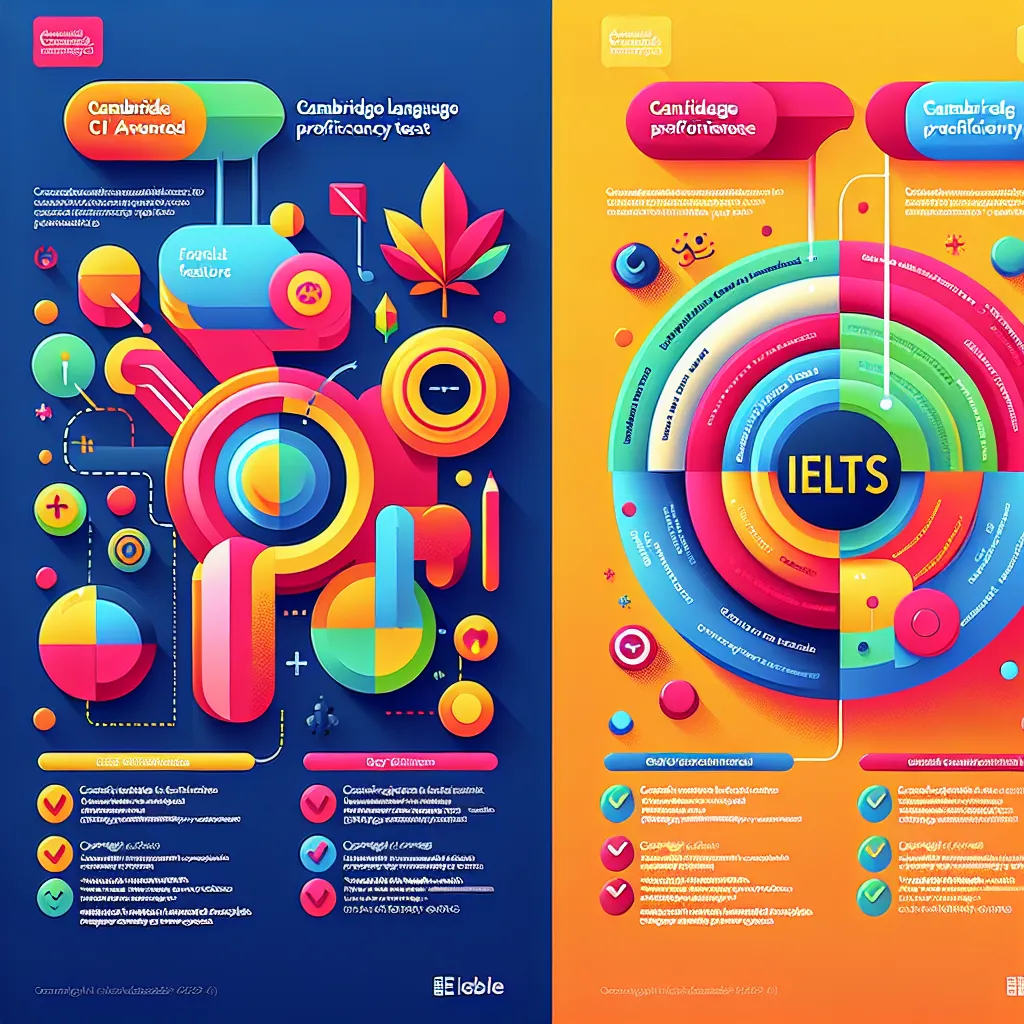For students aiming to prove their English proficiency, two popular exams stand out: Cambridge C1 Advanced and IELTS. While both are internationally recognized, they have distinct characteristics that cater to different needs and goals. This comprehensive guide will explore the key differences between these two exams, helping you make an informed decision about which test suits your objectives best.
Understanding Cambridge C1 Advanced and IELTS
Before delving into the differences, let’s briefly introduce both exams:
Cambridge C1 Advanced
Cambridge C1 Advanced, formerly known as Certificate in Advanced English (CAE), is part of the Cambridge English Qualifications. It’s designed to prove high-level English skills for academic and professional purposes.
IELTS (International English Language Testing System)
IELTS is jointly managed by the British Council, IDP: IELTS Australia, and Cambridge Assessment English. It assesses English language proficiency for study, work, and migration purposes.
 Cambridge C1 Advanced vs IELTS logos
Cambridge C1 Advanced vs IELTS logos
Key Differences Between Cambridge C1 Advanced and IELTS
1. Purpose and Recognition
Cambridge C1 Advanced
- Primarily used for academic and professional purposes
- Widely recognized by universities and employers, especially in the UK and Europe
- Provides a lifelong qualification
IELTS
- Used for academic, professional, and migration purposes
- Globally recognized, particularly for university admissions and visa applications
- Results are valid for two years
2. Test Format and Content
Cambridge C1 Advanced
- Four papers: Reading and Use of English, Writing, Listening, and Speaking
- Focuses on real-world English usage
- Includes a specific ‘Use of English’ component testing grammar and vocabulary
IELTS
- Four modules: Reading, Writing, Listening, and Speaking
- Offers Academic and General Training versions
- No specific grammar or vocabulary section
3. Scoring System
Cambridge C1 Advanced
- Results reported on the Cambridge English Scale (180-210)
- Grades: A, B, C (pass), or Level B2 (narrow fail)
IELTS
- Band scores from 0 to 9 in 0.5 increments
- Overall score is the average of the four modules
4. Test Duration
Cambridge C1 Advanced
- Total time: About 4 hours
- Speaking test conducted on a separate day
IELTS
- Total time: 2 hours 45 minutes
- Speaking test may be on the same day or within a 7-day window
5. Difficulty Level
Cambridge C1 Advanced
- Targeted at C1 level on the CEFR (Common European Framework of Reference)
- Generally considered more challenging due to its focus on advanced language skills
IELTS
- Assesses a wider range of proficiency levels (A1 to C2 on the CEFR)
- Difficulty varies based on the target band score
 Cambridge C1 Advanced and IELTS exam formats
Cambridge C1 Advanced and IELTS exam formats
Choosing Between Cambridge C1 Advanced and IELTS
When deciding which exam to take, consider the following factors:
1. Your Goals
- For UK or European universities/employers, Cambridge C1 Advanced might be preferable
- For global recognition or migration purposes, IELTS could be more suitable
2. Your English Level
- If you’re confident in your advanced English skills, Cambridge C1 Advanced can showcase this
- If you’re unsure about your level or need a more general assessment, IELTS might be better
3. Time and Preparation
- Cambridge C1 Advanced requires more specific preparation due to its format
- IELTS preparation can be more straightforward, with abundant resources available
4. Test Availability
- Check the availability of test centers and dates in your area for both exams
5. Cost
- Compare the costs of both exams in your region, as they can vary
Preparation Tips for Both Exams
Regardless of which exam you choose, here are some general preparation tips:
- Familiarize yourself with the exam format and question types
- Practice with official past papers and sample questions
- Improve your general English skills through regular reading, writing, listening, and speaking practice
- Focus on time management during practice tests
- Consider taking a preparation course or working with a tutor
Conclusion
Both Cambridge C1 Advanced and IELTS are excellent options for proving English proficiency, but they serve slightly different purposes and have distinct formats. Cambridge C1 Advanced is more suited for those aiming to demonstrate advanced English skills, particularly for academic or professional purposes in the UK and Europe. IELTS, on the other hand, offers broader global recognition and is often preferred for migration purposes.
Consider your goals, current English level, and the specific requirements of your target institutions or organizations when making your choice. Whichever exam you decide to take, thorough preparation and practice will be key to achieving your desired results.
[internal_links]
If you’re looking for more information on English language exams, check out our articles on “Top IELTS Preparation Strategies” and “Cambridge English Qualifications: Which Level is Right for You?”




